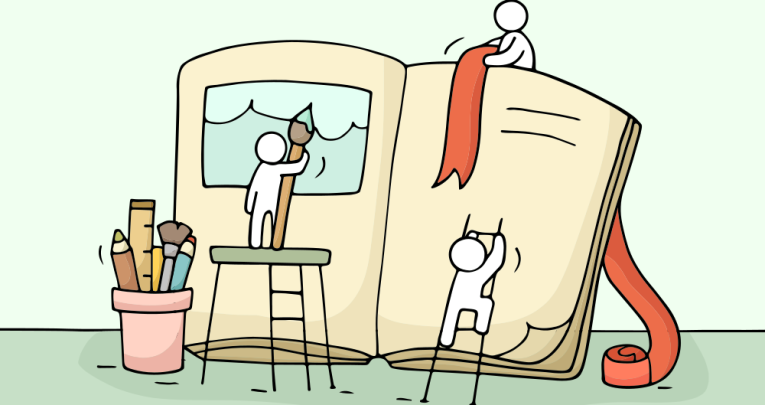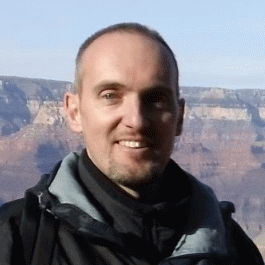If We’re not Getting the Curriculum Right, Young People aren’t Getting the Education they Deserve – and That’s Not OK

Forget ‘how to teach’ – it’s what we teach that matters, argues Alex Standish

The school curriculum is about what knowledge to teach – there is no more important question in education. It is the reason that children go to school – to learn valuable knowledge about the world, its natural systems, its human systems (eg economic and political), cultures, arts, languages and how societies vary in space, time and belief systems.
Armed with specialist knowledge, young people can make valuable contributions to society, including conversations about its future.
The reason a teacher stands in an authoritative relationship to pupils is that they have some specialist knowledge to teach them and they have been trained in how to communicate ideas and skills with pupils.
Yet, in many schools today the knowledge they are teaching pupils is no longer the main preoccupation.
Rather, other things going on seem more important to teachers – were individual needs attended to? Did the pupils check each other’s work? Did students respond to the teacher’s marking? Was the correct colour pen used for their comments? Who was or wasn’t given behaviour points? How were the children sitting? Where was the teacher standing? Was there a good balance of teacher-voice and pupil-voice in the lesson? Was the correct questioning technique employed? Were assessment for learning activities employed? How will data be used to feed forward into the next lesson?
What the pupils learnt in the lesson does feature as part of the conversation, but it is discussed as one among many considerations.
It is not only that classroom procedures tend to supersede the content of education, they become something that teachers cling to – almost as a way of demonstrating that they are doing the job in circumstances where its core purpose has been undermined.
The substance of education
In her book Why Knowledge Matters in Curriculum, lecturer in education Leesa Wheelahan describes how knowledge has been ‘dethroned and displaced’ in curriculum.
Although she was working in New Zealand at the time, her comment is apt for other English-speaking countries.
While the national curriculum review in England has at least placed knowledge back on the map, it has not stopped schools from treating knowledge in an instrumental way, as Amanda Spielman noted in her October 11th commentary.
Accusing schools of ignoring “the real substance of education” she reported that: “In the worst cases, teaching to the test, rather than teaching the full curriculum leaves a pupil with a hollow out and flimsy understanding”.
Unfortunately, she had less to say about Ofsted’s role in creating the culture of teaching to the test in the first place.
The de-prioritisation of the curriculum is also reflected in the Teacher Standards, where knowledge is listed as one among eight standards – so just another box to tick, alongside classroom management, assessment and high expectations, as if they are equivalent!
What is lost with this skills-based approach to teaching is an understanding of the foundational purpose of education – developing children’s understanding of valuable domains of knowledge.
While of course schools are responsible for the welfare of children, everything else that schools do should be in the service of teaching the curriculum.
Pupils’ behaviour, individual needs, pedagogy, technology, classroom management, exam results and employability skills are all secondary factors, and need to stop being treated as ends in and of themselves.
Only if new teachers understand the distinctive part played by curriculum, pedagogy and assessment will they become successful classroom practitioners. And, they need a clear understanding of their subject, its purpose and its relationship to disciplinary knowledge.
Presently, most trainee teachers enter their teacher education without these, itself a product of the instrumental approach to knowledge they have been taught as they made their way through our schools and universities.
True, right and beautiful
In a new book, What Should Schools Teach? Disciplines, Subjects and the Pursuit of Truth – of which I am co editor – we are seeking to place curriculum back at the heart of what schools do by engaging teachers in a conversation about what is true, what is right and what is beautiful.
Each chapter focuses on one subject to explore its evolution over time, its purpose, its methods, its object of study, what insight it provides into human experience and/or the physical world, how this can be reflected in the curriculum and its value to children.
For beginning teachers, gaining clarity about the epistemic principles and dimensions of their subject is invaluable. It gives them a strong sense of purpose in the classroom and leaves them well-placed to plan and design curricula.
The disciplinary knowledge that informs the curriculum comes from our universities and broader culture. The role of the teacher is to re-contextualise or re-package this disciplinary knowledge into a form that is accessible for pupils.
They must also learn to sequence knowledge and skills so that pupils are introduced to the subject in coherent and meaningful way. The chapters in the book are all written by educationalists who examine principles of curriculum design unique to their subject.
Teachers must also find ways of bringing their subject to life for children (pedagogy). This necessitates bridging the gap between disciplinary/theoretical knowledge and the knowledge and experiences of the child.
Here, it is helpful to conceive of teaching as a craft. Communicating with subjective individuals is not a science, but demands creativity, imagination, enthusiasm, passion and patience.
Keep it moving
Finally, it is important to remember that disciplinary knowledge is not static and neither should this be the case with the school curriculum. Teachers and schools need to work at their subject knowledge and continually augment the curriculum – hence it needs to be a main focus of professional development.
Teachers are in an intellectual profession and schools should be communities where everybody is engaging in exploring questions about truth, morality and beauty.
The cost of not prioritising the curriculum over instrumental and procedural matters is that children will become turned off education, their minds closed, their life chances diminished and most worryingly… they will not be inspired.
Alex Standish is senior lecturer in geography education, Institute of Education, University College London, and co-editor of What Should Schools Teach? Disciplines, Subjects and the Pursuit of Truth. Enter the code ‘Teach’ at tinyurl.com/tswhattoteach to purchase the book with a 25% discount.
The Institute of Ideas Education Forum gathers monthly to discuss trends in educational policy, theory and practice. To find out about the next event, visit instituteofideas.com/forums












